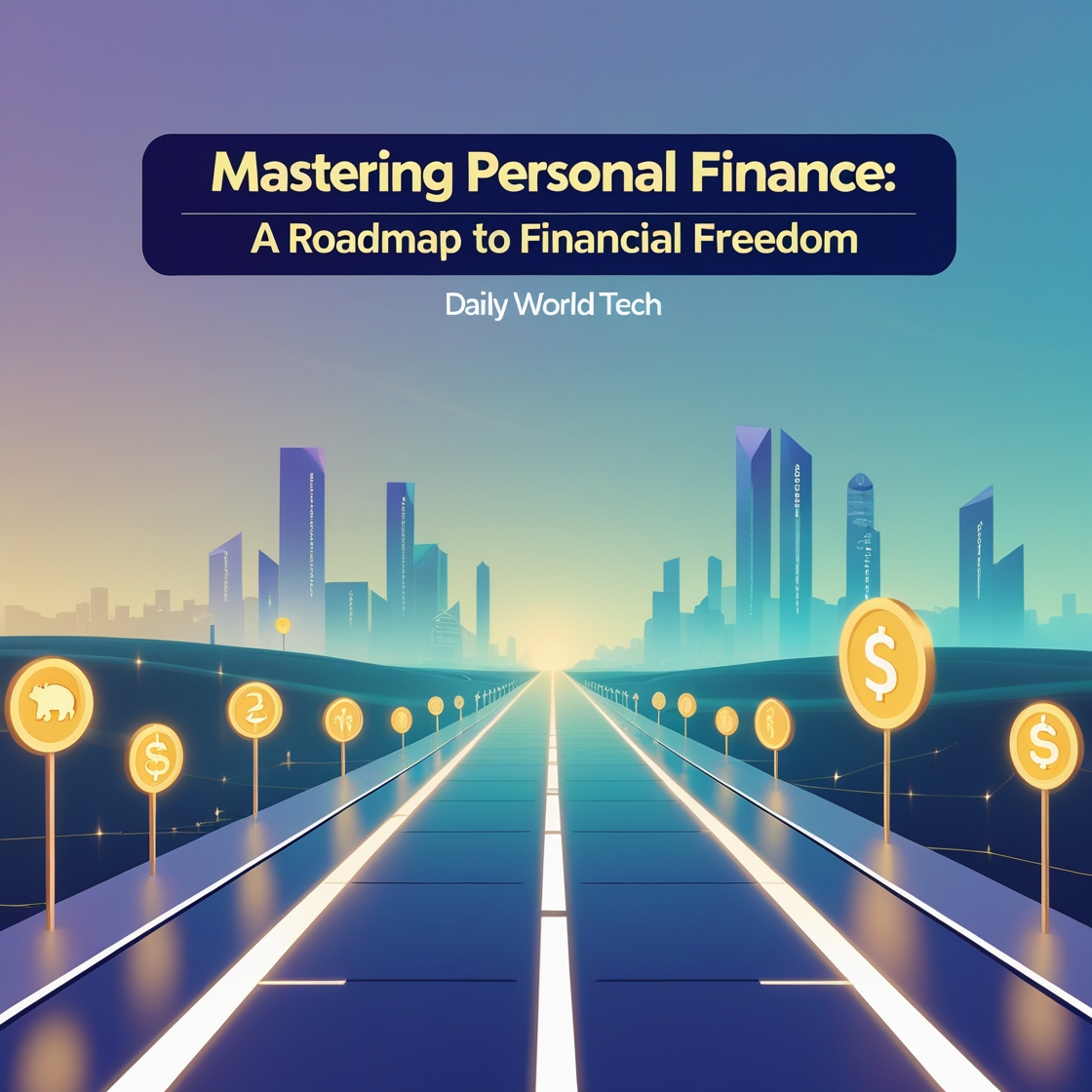Properly managing your money matters more than ever today, since the world moves so fast. Knowing how to use your money can change your life at any stage, whether you are a student, freelancer, professional or about to retire. This blog explores personal finance in detail, using real cases, helpful tips, pros and cons and more financially competent and secure your financial freedom.

What does Personal Finance mean?
Personal finance means taking care of your money such as budgeting, saving, investing and ensuring you have enough for retirement. The goal you should set is to make choices that help your money last and stay secure in the future.
Why Personal Finance Matters
Here are some reasons why mastering personal finance is essential:
| Benefit | Description |
| Financial Security | Avoid debt and build an emergency fund |
| Peace of Mind | Reduce stress through organized money management |
| Retirement Planning | Ensure you can retire comfortably |
| Financial Goals | Achieve dreams like buying a home or starting a business |
Personal Finance Tips for Different Life Stages
1. Personal Finance Tips for Beginners
If you’re just starting out, focus on building foundational habits:
- Create a budget to track income and expenses.
- Set up an emergency fund.
- Learn about compound interest to understand how your money can grow.
Real-life Example: Sarah, a recent college graduate, used a budgeting app and managed to save $5,000 in her first year of working.

2. How to Manage Personal Finance in Your 30s
At this stage, financial planning becomes more important:
- Start investing in retirement accounts.
- Pay off high-interest debt.
- Focus on credit score improvement.
3. Personal Finance Planning for Freelancers
Freelancers must handle irregular income and taxes:
- Separate personal and business finances.
- Use apps for expense tracking.
- Save at least 25-30% for taxes.
4. Personal Finance Advice for College Students
- Avoid unnecessary student loans.
- Get a part-time job.
- Use student discounts to save money.
5. Personal Finance Strategies for Low Income
Even on a low income, you can build wealth:
- Prioritize needs vs wants.
- Use free tools for budgeting.
- Automate small savings weekly.
6. Personal Finance Checklist Before Retirement
- Assess your net worth.
- Max out retirement savings accounts.
- Reduce expenses and clear debts.
7. Personal Finance Management for Families
- Create a shared family budget.
- Set financial goals like education funds.
- Teach kids about financial literacy.
8. Personal Finance Goals for 2025
- Build an emergency fund of 6 months’ expenses.
- Increase credit score by 50 points.
- Save 20% of your income.
9. How to Improve Personal Finance Habits
- Review finances monthly.
- Avoid emotional spending.
- Educate yourself about money management.
10. How to Manage Family Finances
Managing finances as a family requires communication and coordination:
- Hold regular family meetings to discuss financial goals.
- Assign financial responsibilities (e.g., bills, savings).
- Involve children in budgeting exercises to build their financial awareness.
11. How to Set and Achieve Financial Goals
Setting clear financial goals helps keep your finances on track:
- Define short-term and long-term goals.
- Break goals into actionable steps.
- Monitor your progress monthly.
12. Common Personal Finance Mistakes to Avoid
- Living beyond your means.
- Not saving for emergencies.
- Relying solely on credit cards.
- Ignoring your credit score.
13. The Importance of Emergency Funds
- Emergency funds provide a safety net in case of job loss, medical emergencies, or major repairs.
- Aim to save 3-6 months of expenses.
- Keep funds in a liquid and easily accessible account.
14. Understanding Your Credit Score
- A good credit score opens doors to better interest rates and financial opportunities.
- Pay bills on time and reduce credit utilization.
- Regularly check your credit report for errors.
15. How to Build Wealth Over Time
- Start investing early to benefit from compound interest.
- Diversify your investments.
- Reinvest earnings and increase contributions over time.
16. Balancing Income vs Expenses
- Track all sources of income and recurring expenses.
- Cut back on non-essential spending.
- Use tools or spreadsheets to maintain balance.
Tools and Apps to Help
| App | Use |
| Mint | Budgeting and expense tracking |
| YNAB (You Need A Budget) | Advanced budgeting techniques |
| Personal Capital | Investment tracking and net worth analysis |
Pros and Cons of Managing Your Own Personal Finance
| Pros | Cons |
| Greater control | Time-consuming |
| Tailored strategies | Steep learning curve |
| Potential savings | May miss professional advice |
Future Use of Personal Finance Knowledge
Understanding personal finance isn’t just for today—it’s an investment in your future:
- Use financial knowledge to evaluate new job offers or business opportunities.
- Plan for life events such as weddings, children, or homeownership.
- Teach others, especially younger generations, how to manage money wisely.

Real-Life Story: John’s Journey to Financial Independence
John downloaded an app and began monitoring how much money he was earning vs spending. He started an emergency fund, raised his credit score and began to invest in index funds. Within this time, he built a portfolio with $100,000 and came closer to financial freedom.
Final Thoughts
Everyone’s experience with managing money is different. Whether you’ve just started or have been managing money for a while, strong habits, using good tools and education all help you reach your financial targets. Today is a good day to start, so watch your confidence in financial decisions grow. Read more information….














